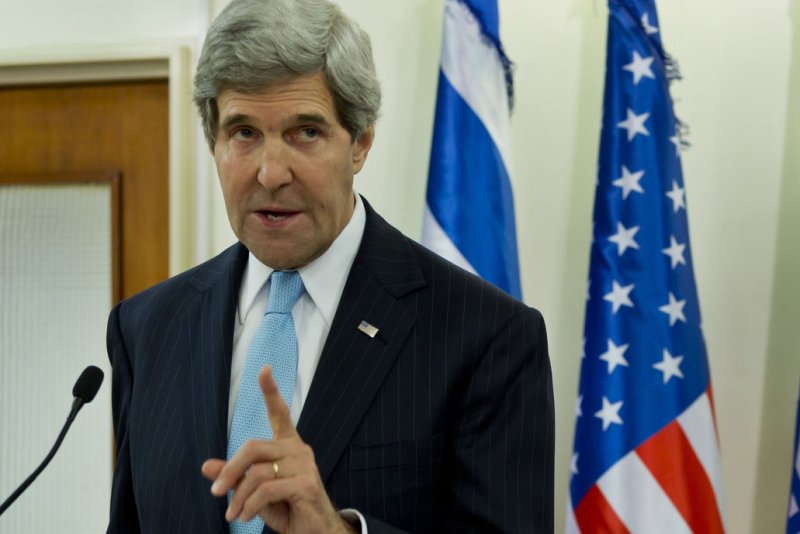1 of 2 | U.S. Secretary of State John Kerry, pictured in January 2014, told reporters the U.S. will not send troops to Iraq after a surge in extremist violence. (UPI/Jim Hollander/Pool) |
License Photo
Al-Qaida forces in Iraq have taken control of Fallujah and parts of Ramadi, prompting the question: how will the U.S. respond?
U.S. Secretary of State John Kerry, speaking to reporters on Sunday in Jerusalem, where he was in town to meet with Israeli Prime Minister Benjamin Netanyahu for peace talks, underlined that the administration is closely monitoring the situation in Iraq but was not going to recommit troops to the embattled country.
"So we are not, obviously, contemplating returning. We’re not contemplating putting boots on the ground. This is their fight, but we’re going to help them in their fight."
Iraqi forces are readying to recapture Fallujah. However, Iraqi Prime Minister Nouri Kamal al-Maliki has said that if residents of Fallujah can reclaim the city from al-Qaida and the Islamic State of Iraq in the Levant, they will be spared military action. Maliki called on "the people of Fallujah and its tribes to expel the terrorists," according to Iraqi state television.
Anbar Province has been the site of heightened fighting in January as local tribes, al-Qaida militants and Iraqi security forces have battled one another. On January 3, a masked ISIS fighter addressed a crowd gathered for Friday prayers in Fallujah, declaring the city an "Islamic emirate" and promising to help its residents fight the Iraqi central government and its Iranian allies.
The Department of Defense, according to an article in The New York Times, has contracted with the Iraqi Government to provide Hellfire missiles and low-tech surveillance drones to help Iraq battle extremists.
During the Iraq War, the U.S. Marine Corps' battle for control of Fallujah in 2004 was the bloodiest battle of the war.
[State Department]
[BBC]
[Washington Post]
[New York Times]







